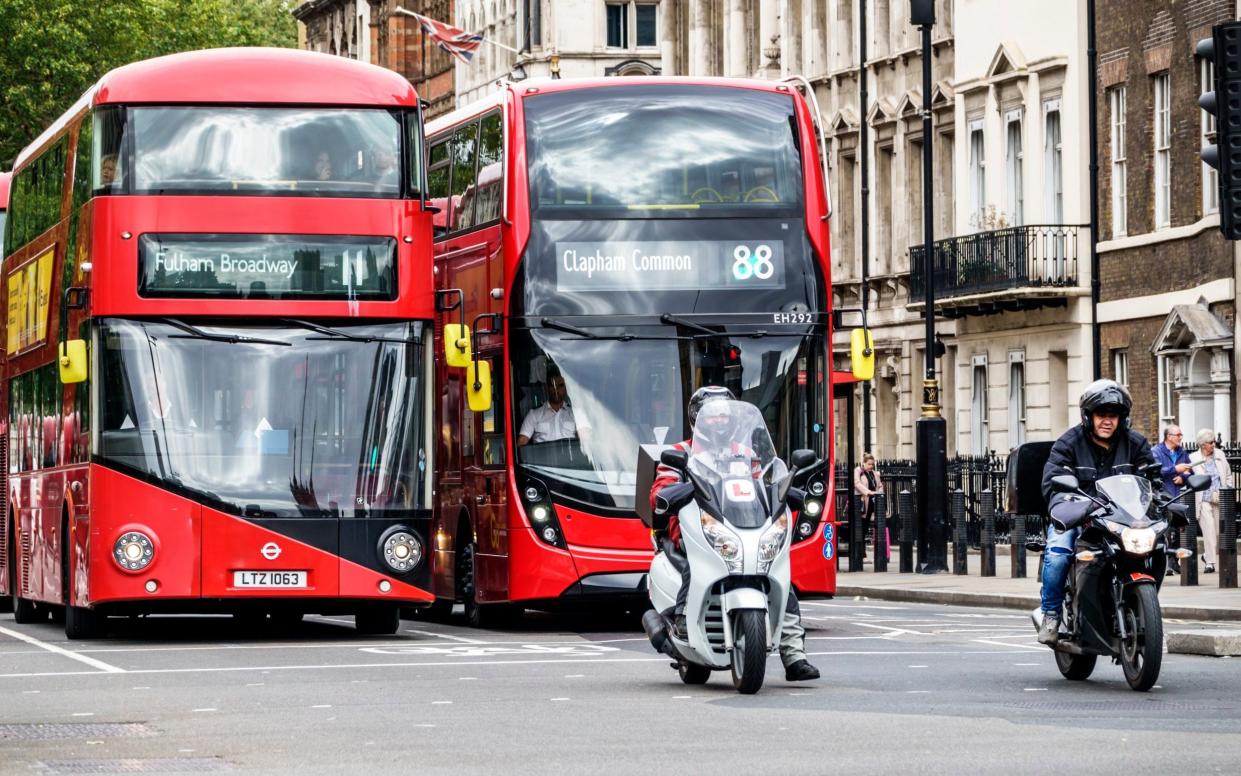Bikers dragged into Labour councils’ war on motorists with new parking charges

Several Labour-led London councils have been accused of pursuing an “anti-motorcycle agenda” after putting forward charges for vehicles parking within their boroughs.
Motorcycling campaign groups have slammed the moves by boroughs such as Hackney, Lewisham and Islington, which have brought in, or are bringing in, charges.
This comes despite nearly all other councils in the country letting these vehicles park for free.
In the case of Hackney, this could see motorcyclists being forced to pay as much as £2,300 across the year.
Save London Motorcycling (SLM), which has been campaigning against these charges for several years, accused the boroughs of having an “irrational bias” against motorcycles.
While the union GMB said it would make it more expensive for business and could push some businesses out of certain areas.
It comes as groups continue to protest against Sadiq Khan’s decision to charge them the same as cars under Ulez rules.
The biggest potential parking bills facing riders is in Hackney where the council is currently looking to push through new £1-an-hour charges, which could see riders forced to pay £2,300 a year.
Hackney has said it is bringing in the charges to tackle the issue of toxic air and encourage more people to walk and cycle.
Mete Coban, Hackney Council cabinet member for climate change, environment and transport, said: “The principle of emissions-based charging is one that is helping to reduce CO2 emissions and tackle pollution in Hackney, and that’s why it’s so important.”
The council added it was pausing the implementation to listen to campaigner concerns.
‘Anti-motorcycle agenda’
However, the National Motorcyclists Council argued that the charges were being put in place for electric motorcycles too, and accused the borough of pursuing an “anti-motorcycle agenda”.
Craig Carey-Clinch, executive director at the NMC, said: “It is very disappointing that given the congestion and CO2 reduction benefits, which come from motorcycle use, it is pursuing disproportionate parking charges.”
Other authorities have brought in more modest charges, with Lewisham and Islington charging £2 and £1 a day for parking, while Waltham Forest is charging £175 a year for the highest-emitting business vehicles.
However, campaign groups said that despite smaller costs, riders caught without a parking ticket could face fines. Motorcyclists in Islington have already been hit with fines of up to £80.
Ben, from SLM, urged the councils to reconsider. He said: “We have been caught up in their war on anything with a motor and a licence due to the baseless prejudice of a few ill-informed but influential individuals in certain key positions.
“Anti-motorcycle policies are an attack on working people. These policies mean London is becoming the preserve of a small group of the time- and money-rich.”
It comes as some London riders are preparing for new charges that will come under the mayor of London’s Ulez expansion.
Under the current Ulez scheme, motorcycles like cars are charged £12.50 each day, if their vehicles do not meet certain Euro emissions standards.
Clean-air zones
Mr Carey-Clinch said the mayor needed to follow councils that run other clean-air zones, which have made motorcycles exempt from the charges.
This was supported by Steve Garelick, GMB national lead taxi and PH, who said: “I think an exemption makes more sense in relation to motorcycles; it’s proven that the emission levels, generally speaking, on motorcycles are minimal.”
A Transport for London spokesperson said: “To tackle London’s air-pollution problems, we must reduce emissions from all vehicle types in London. This is why motorcycles are included in the Ulez.
“Exhaust emissions regulation for motorcycles began later than for passenger cars and have since lagged behind the trajectory of emissions controls used for other vehicles. This means that, although motorcycles may contribute a relatively small proportion of total emissions, they can be highly polluting on an individual basis.
“The London-wide Ulez is vital in tackling the triple challenges of air pollution, the climate emergency and congestion, and will ensure millions more people can breathe cleaner air. We are already seeing 90 per cent of cars driven in outer London on an average day complying with the standards and expect these figures to be even higher when the scheme goes live.”

 Yahoo News
Yahoo News 
